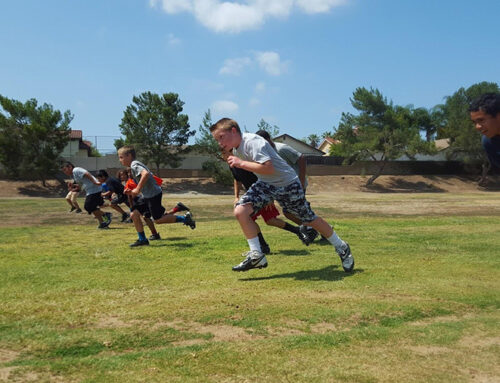In sports, the qualities of resilience, persistence, and mental toughness are valued just as much as physical talent. For student-athletes, developing “grit” is not just a nice-to-have trait—it’s essential for lasting success on and off the field. Grit, often defined as a combination of passion and sustained persistence, is the driving force that enables individuals to keep going even when the going gets tough. For student-athletes facing both academic and athletic demands, grit becomes a foundational skill that directly impacts their potential, future goals, and overall resilience in life.
1. The Unique Demands on Student-Athletes
Student-athletes face unique challenges that their non-athlete peers may not encounter. Balancing rigorous academic schedules, attending early-morning practices, traveling for competitions, and handling physical fatigue can be overwhelming. The level of commitment required can test even the most disciplined students. When a student-athlete possesses Grit they’re able keep up with these demands, stay committed to their goals, and work towards improvement day after day. By developing grit, student-athletes gain the resilience to withstand the pressures of both academics and athletics, avoiding burnout and rising to meet each challenge with renewed energy.
2. Handling Setbacks and Injuries
In sports as in life, setbacks are inevitable. Student-athletes encounter a range of challenges—from losing games and dealing with poor performance to recovering from injuries. Grit teaches them to view these obstacles not as dead-ends but as opportunities to grow, learning lessons to become stronger and come back better. For instance, an athlete recovering from an injury might use grit to stay committed to their recovery plan, attend physical therapy, and learn best practices for staying healthy in the future. Developing this mindset prepares student-athletes to view setbacks as temporary and surmountable rather than permanent failures.
When student-athletes embrace grit, they become more adaptable and resilient, both of which are critical when things don’t go according to plan. This mindset becomes invaluable throughout life, especially when challenges seem insurmountable.
3. Building Self-Discipline and Consistency

Grit and self-discipline go hand-in-hand. For student-athletes, the journey to improvement is rooted in repetitive practice, skill refinement, and continual learning. Grit fuels this discipline, pushing athletes to work consistently even when they don’t see immediate results or feel like it. Whether they’re struggling with a specific technique, a training plateau, or a tough academic subject, grit keeps them on course. Over time, this grit-driven discipline leads to mastery, allowing athletes to achieve milestones that seemed impossible when they started.
A disciplined approach also contributes to a student-athlete’s ability to manage time efficiently. By adopting a grit-focused mentality, they’re able to prioritize responsibilities and develop habits that not only boost athletic performance but also set them up for long-term success.
4. Preparing for Life Beyond Sports
Sports are very much a microcosm of life, filled with wins, losses, and lessons learned. For many student-athletes, the skills and habits developed on the field extend far beyond sports. Grit prepares student-athletes for life’s unpredictable nature, where resilience and perseverance become crucial to overcoming setbacks and achieving personal or professional goals. In life, as in sports, challenges don’t vanish after the final whistle, and success often comes to those who push through difficult times.
College recruiters and employers alike value candidates with a demonstrated ability to persevere through tough times, seeing grit as a reliable predictor of future success. Student-athletes who have cultivated grit on the field often transition smoothly into the working world or higher education, where they’re required to juggle responsibilities, meet high expectations, and persist through challenges.
5. Fostering Mental and Emotional Health
Finally, grit plays a significant role in mental and emotional health. Knowing that setbacks are part of the journey helps student-athletes manage the pressures of performance. It teaches them that success isn’t always about winning; it’s about effort, growth, and improvement. By developing grit, student-athletes learn to focus on their own progress rather than comparing themselves to others, reducing stress and anxiety.
The mental toughness developed through grit also helps them build a healthy relationship with failure, seeing it as a learning experience rather than a reason to give up. This resilience, formed during their formative years, supports mental well-being throughout their lives, preparing them for the inevitable ups and downs that life presents.
For student-athletes, developing grit isn’t just beneficial; it’s transformative. By cultivating grit, they’re able to tackle the demands of their sports, handle setbacks, build self-discipline, and prepare for life beyond athletics. This foundational trait, developed early, becomes a lifelong asset, shaping the way they approach challenges, view success, and handle the curveballs that come their way. So while talent may get a student-athlete onto the team, grit will drive them toward lasting success in sports, academics, and life.-Boostman

Owner, Boost Training Systems in Corona, CA
Level 1 & 2 Coach Bommarito Performance
CSCS, USAW




















